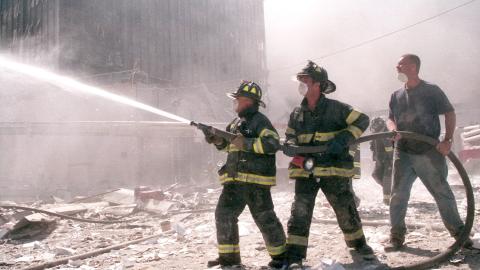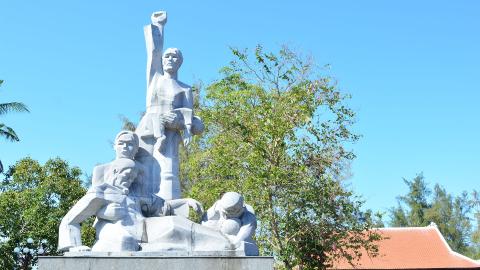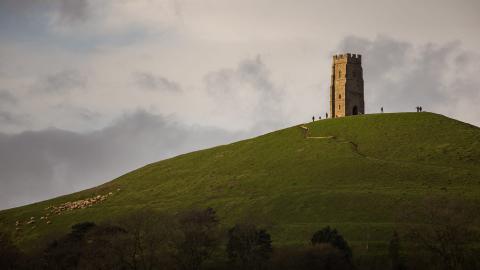Four infamous whistleblowers from history
FBI Associate Director Mark Felt, a man who held the Bureau's second-highest position, leaked critical information about President Nixon’s connection to the 1972 Watergate break-in.
According to the Oxford English Dictionary, a whistle-blower is ‘a person who informs on a person or organisation regarded as engaging in unlawful or immoral activity.’ Under that definition it could be assumed that any such person would be seen as a hero, risking their careers, reputation and sometimes even their own lives to expose the wrongdoings of others. Indeed, many stories involving whistle-blowers have been given the Hollywood treatment and even featured on Time magazines much coveted front cover.
However, not all whistle-blowers have been regarded in such high esteem, labelled instead with the less-than-desirable title of traitor, with some even being handed down prison sentences. In what light these people will finally be cast in is yet to be seen, but let’s take a look at four of history’s most (in)famous whistle-blowers.
Mark Felt aka Deep Throat
Of all the political scandals that have rocked America, Watergate is arguably the most notorious. Not only did it force President Richard Nixon to resign from office, becoming the only President in American history to do so, but the adoption of the suffix –gate to suggest the existence of a scandal has now become part of the English language. The scandal caused a seismic shift in American politics, a shift that might never have occurred if it wasn’t for a whistle-blower exposing the dirty workings of ‘Tricky Dicky’.
FBI Associate Director Mark Felt, a man who held the Bureau's second-highest position, acted as an anonymous informant for two reporters at the Washington Post - Bob Woodward and Carl Bernstein. Felt leaked critical information about Nixon’s connection to the 1972 Watergate break-in to the two journalists, who in turn gave him the nickname of “Deep Throat”.
As the scandal blew up in the media, Nixon was left no choice but to resign which he did on 9 August, 1974. Although Felt’s identity as Deep Throat was strongly suspected by many, it was kept a secret for over 30 years and wasn’t publicly admitted until 2005.
Whilst many consider him an American hero, helping to bring down one of the country’s most morally corrupt presidents, others have suggested he acted more out of ambition than he did patriotic reasons. Whatever his motives, the whistle he blew on Richard Nixon altered American politics forever.
Felt passed away in 2008 at the age of 95.
Daniel Ellsberg
The Vietnam War took a heavy toll on the American psyche and left the nation divided. After the war people no longer trusted the government like they once did and the scars left behind shaped the political landscape of Uncle Sam for decades to come.
The Johnson administration had been systematically lying to the American people for a long time about the country’s involvement in the war. The public discovered just how much their president had been deceiving them when military analyst Daniel Ellsberg leaked a top-secret Pentagon study to The New York Times.
Ellsberg had been working for the RAND Corporation, an American global policy think tank when he began working on a study about the history of the U.S. government’s decision-making in regards to the Vietnam War. This study became known as the Pentagon Papers.
Although the Nixon administration tried to prevent The New York Times and Washington Post from publishing the papers, they found themselves on the front pages of both in 1971. The American public learned that the U.S. had secretly been bombing Cambodia and Laos, along with conducting coastal raids on North Vietnam - none of these actions had previously been reported.
Although Ellsberg was initially charged with conspiracy, espionage, and theft of government property, all charges against him were dropped as the Watergate scandal blew up.
In 2006, Ellsberg received a Right Livelihood Award and in more recent years he has been an outspoken supporter of other whistle-blowers including the next person on our list.
Edward Snowden
In 2013, whilst working as a contractor for the NSA (National Security Agency), Edward Snowden leaked highly classified documents regarding numerous secret global surveillance programs run by the agency. The former CIA employee gave the information to multiple newspapers including The Guardian and The Washington Post, who subsequently published stories based on the materials they had been provided by Snowden.
‘In my estimation, there has not been in American history a more important leak than Edward Snowden’s release of NSA material
At his own request Snowden’s identity was also published in the press and in subsequent interviews he revealed his motivations for leaking the documents stating, ‘I do not want to live in a world where everything I do and say is recorded. My sole motive is to inform the public as to that which is done in their name and that which is done against them.’
Daniel Ellsberg declared it the most significant leak in U.S. history saying, ‘In my estimation, there has not been in American history a more important leak than Edward Snowden’s release of NSA material ... Snowden’s whistleblowing gives us the possibility to roll back a key part of what has amounted to an 'executive coup” against the U.S. constitution.'
The U.S. government was less impressed with Snowden’s actions and they subsequently brought charges against him for espionage and theft of government property. His U.S. passport was revoked shortly after the leaks but not before Snowden was able to flee the country.
He is reportedly residing in Russia having been granted a right to asylum, which will permit him to stay there until at least 2020.
Julian Assange
When it comes to whistle-blowers, no one embodies the hero vs. villain debate more than the Australian founder and director of WikiLeaks. Julian Assange launched the whistle-blowing organisation back in 2006 and since then it has become known for publishing news leaks and classified information on its website. In its first 10 years, Wikileaks claimed to have released 10 million documents online with many of them being top secret.
The organisation came to international attention in 2010 when U.S. Army intelligence analyst Bradley Manning, who later changed her name to Chelsea, revealed through Wikileaks thousands of documents relating to the Iraqi and Afghanistan wars. Included was a video that Wikileaks labelled Collateral Murder. It contained footage showing an American Apache helicopter gunning down unarmed Iraqi civilians as well as two journalists.
The biggest leak in the military history of the United States followed shortly after, with the disclosure of nearly 400,000 documents entitled The Iraq War Logs. The documents declared there to be 15,000 more civilian deaths than the U.S. government had previously admitted to.
Other significant leaks have followed in the years since including information regarding Guantanamo Bay, toxic waste dumping and U.S. agencies spying on foreign governments.
More recently WikiLeaks was responsible for publishing thousands of emails from Hilary Clinton’s campaign during the 2016 presidential election. The leak significantly harmed the Clinton cause and Assange has been accused of collaborating with Russia to influence the outcome of the election, an accusation he denies.
Ever since the Manning leaks, the U.S. government has been attempting to extradite him to the States and prosecute him for his role in their publication. After seven years living in the Ecuadorian Embassy in London, the Ecuadorian authorities revoked Assange’s asylum on 11 April 2019. He was subsequently arrested by police and later found guilty of skipping bail in 2012 after an international arrest warrant for him had been issued by Sweden in regards to sexual assault allegations.
He now faces 50 weeks in a British prison and a fresh investigation by Swedish prosecutors into the rape allegations initially made against him back in 2010.















